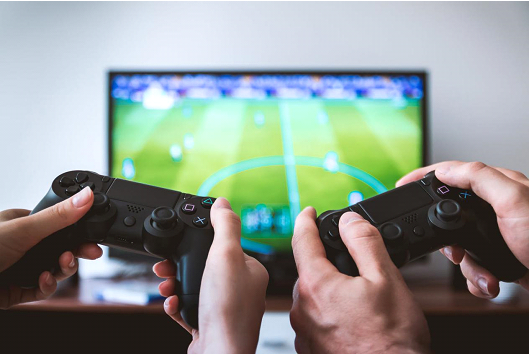Is it Possible to Unlock Your Gaming Potential Through Neuroscience?

Over the years, many of us gamers may recall being repeatedly told over and over that video games make the brain rot—whether by our own mothers or teachers. However, science is starting to prove the opposite.
According to game designer and futurist Jane McGonigal, playing games may actually be one of the best things humans can do for the brain. From improving our cognitive abilities to developing our social skills, games grant us the ability to tackle life as a series of challenges that can be overcome. In other words, to be a better gamer is to be better in life. Of course, not all games are created equal, and to reap the benefits, one should stick to titles that encourage creative thinking, collaborative problem-solving, and joyful positivity—all traits that are useful for the offline world.
How does one go about being a better gamer then? We turn to neuroscience for some answers.
Playing games can exercise the brain.
To unlock your gaming potential, perhaps the solution is to simply play games. A group of European researchers have found that games drastically change how our brains perform, affecting even its structure. For example, their study states how gaming supports the region of our brain that is responsible for visuospatial skills. This means that the more you play, the better you will be at observing. And for shooter games like Call of Duty or horror visual novels like Man of Medan, your knack for observation is the difference between victory and “game over.”
Being a better gamer just means playing the right game.
Do you remember our previous post on ‘What your personality type says about your gaming tastes’? The same discussion was based on the Jungian typography personality framework, which is the same model that the Myers-Briggs typology was based on. Here’s what it looks like:

(Image Credit: Medium)
This relationship between games and personality explains why certain people are better at some games but perform terribly at others. For example, the analytic mind of an ENTJ makes them inclined to play games strategically. If you were to present them with titles like Tekken or Smash, their approach would be to memorize combos and counters before going into battle. Its opposing personality type, ISFP, tends to be more spontaneous. This means that, in fighting games, they’re the most likely to button mash (and lose). ISFPs are better at games that are more straightforward, like adventure or racing titles.
Sometimes, being a better gamer has less to do with brainpower and more of personality. You can be inherently bad at some games simply because of how you play. But this just means that you’re naturally talented in others. On that note, it was 17-year-old Kyle Giersdorf’s aggressive and dominant playing style that made him the youngest winner of the Fortnite World Cup. Since Fortnite is a fast-paced, action-packed survival game, then an aggressive approach is the only way you can be the last man standing. It’s a formula that the young gamer certainly has down to a T.
Gaming with friends will make you a smarter player.
Whether it’s playing actual co-op games like Overcooked or having someone watch you stumble through Borderlands, you’ll find that playing with your friends brings more than just companionship. For instance, LevelSkip notes how every stage is an opportunity to discuss strategies, or how it’s refreshing to hear other perspectives when you choose your gear. Playing alone isn’t bad, per se, but you’ll find yourself making more informed decisions if you play with someone else. Plus, you become exposed to other perspectives.
Whether it’s the games themselves affecting your brain, the personalities you grew up with, or the company you keep, your gaming potential is dependent on a lot of variables. All of these discoveries and more were only made possible through the power of science.
Written by Analisa Winter
Exclusive for gametree.me













